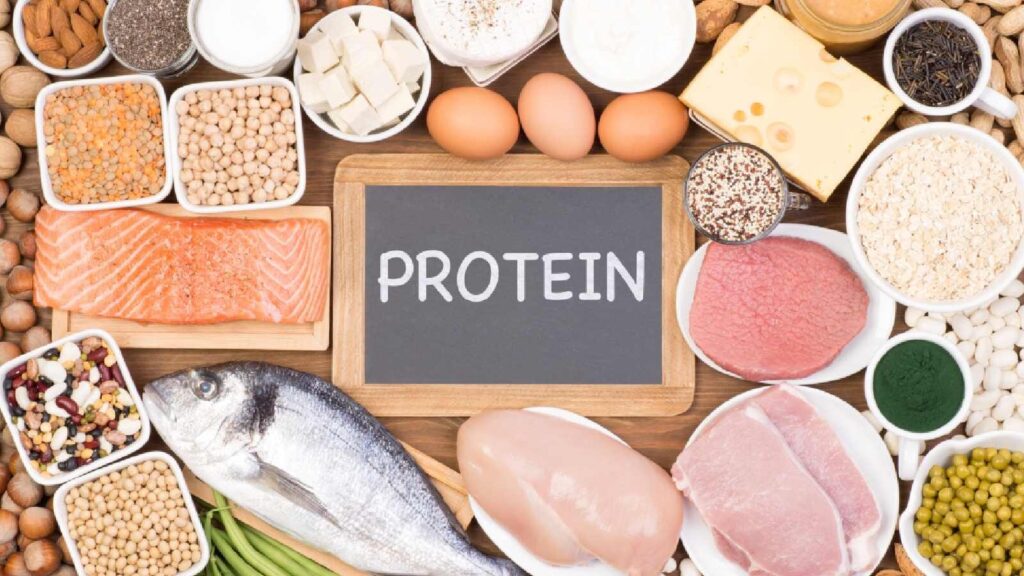
Just ingredients protein powder
About Protein
Protein powder is a popular supplement used to increase protein intake, which is essential for muscle growth, recovery, and overall health. It can be especially useful for people who need to be strong muscle support in any age, also enthusiast for higher protein needs, such as athletes, bodybuilders, vegetarians, or those who are trying to lose weight or gain muscle.
Here are some common types of protein powders:
Whey Protein:
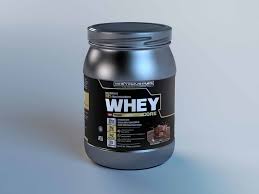
Derived from milk during cheese production.
Contains all essential amino acids and is quickly absorbed by the body.
Ideal for post-workout recovery.
It can cause digestive issues in people who are lactose intolerant.
Casein Protein:
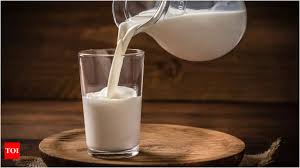
Also derived from boiling milk process..
It provides a steady release of amino acids, making it ideal for consumption before bed.
Plant-Based Proteins:
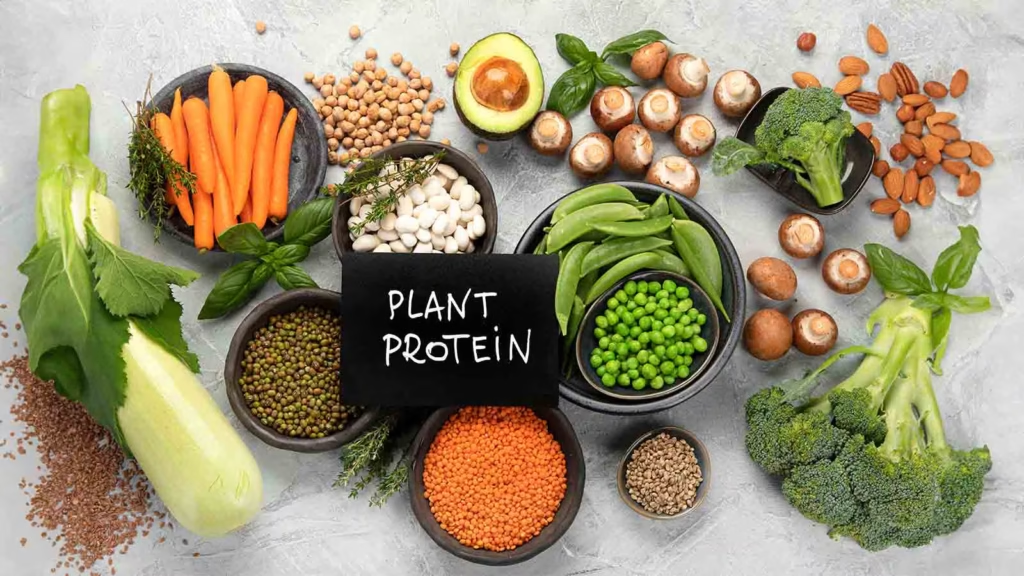
Made from sources like peas, rice, hemp, and soy.
Suitable for vegans and those with dairy allergies.
May lack some essential amino acids but can be combined to form a complete protein profile.
Egg White Protein:

Made from egg whites, this protein is fat-free and low in carbohydrates.
High in branched-chain amino acids (BCAAs) that help with muscle recovery.
Collagen Protein:
Derived from animal connective tissue (usually from cows or fish).
Known for benefits to skin, joints, and gut health.
Not a complete protein (it lacks tryptophan) but still useful for specific health goals.
Benefits of Protein Powder:
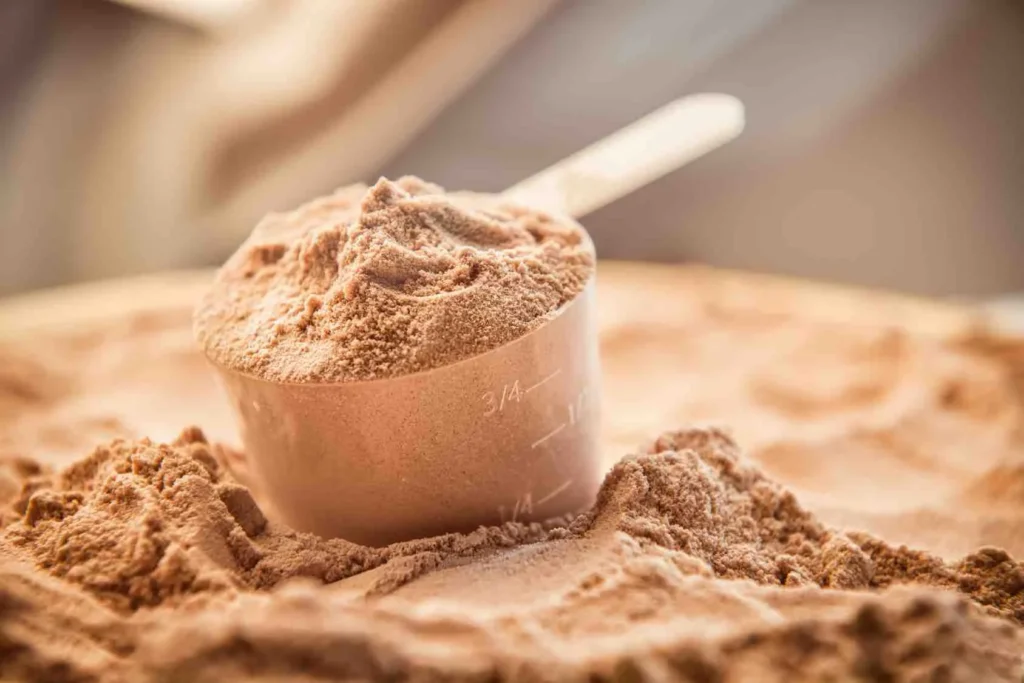
Muscle Building and Repair: Protein is essential for muscle recovery after exercise.
Convenience: It’s an easy and quick way to get protein, especially for those with busy lifestyles.
Weight Management: Protein can help promote feelings of fullness, aiding in weight loss or maintenance by reducing hunger.
Improved Performance: Athletes often use protein powder to support their physical goals, like strength and endurance.
When to Take Protein Powder:
Post-Workout: To help with muscle recovery and replenish protein stores.
In Between Meals: To ensure you’re meeting your daily protein needs.
Before Bed: To provide your body with a slow-releasing protein (like casein) throughout the night.
Protein Powder: Myths and Realities

Protein powders have become a staple in the fitness and health industry. Whether you are an athlete, a bodybuilder, or just someone looking to maintain a healthy diet, protein supplements promise muscle growth, recovery, and overall well-being. However, along with their popularity, several myths and misconceptions have emerged. This article will explore the myths and realities of supplements to provide a clear understanding of their benefits and limitations.
Understanding Protein Powder
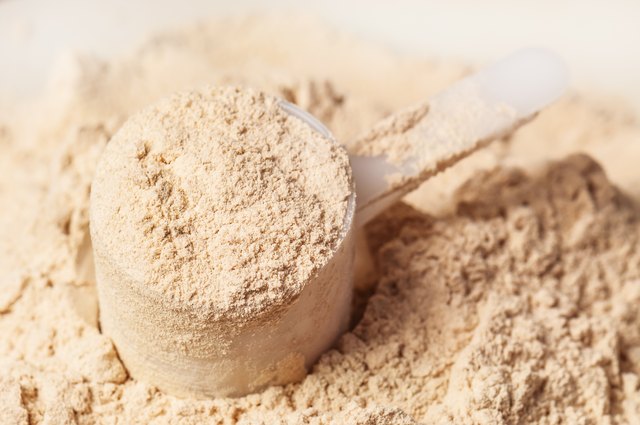 THIS supplement is an essential macronutrient responsible for muscle repair, enzyme production, and various bodily functions. Protein powders are concentrated sources of protein derived from animal or plant sources such as whey, casein, soy, pea, and rice. They serve as a convenient way to meet daily protein needs, especially for those with high requirements. protein powder is not only of gym enthusiast, athletes etc.. protein powder also consume by old age people also.
THIS supplement is an essential macronutrient responsible for muscle repair, enzyme production, and various bodily functions. Protein powders are concentrated sources of protein derived from animal or plant sources such as whey, casein, soy, pea, and rice. They serve as a convenient way to meet daily protein needs, especially for those with high requirements. protein powder is not only of gym enthusiast, athletes etc.. protein powder also consume by old age people also.Common Myths and the Truth Behind Them

Myth 1: Protein Powder is Only for Bodybuilders
Reality: While bodybuilders and athletes do require higher protein intake to support muscle growth and recovery, protein powder is not limited to them. People of all ages and activity levels can benefit from it, especially those who struggle to get enough protein from whole foods. Older adults, vegetarians, and individuals recovering from illness may find protein powder helpful in meeting their nutritional needs.
Myth 2: Natural Food is Always Better Than Protein Powder
Reality: Whole foods provide additional nutrients like fiber, vitamins, and minerals, making them an essential part of a balanced diet. However, protein powders are a convenient supplement for people who cannot meet their protein intake through food alone. They are particularly useful for those with busy lifestyles, digestive issues, or dietary restrictions. Quality protein powders contain minimal additives and can be just as effective as whole foods when used appropriately.
Myth 3: Too Much Protein Damages the Kidneys
Reality: This is one of the most common concerns. For healthy individuals, consuming higher protein levels does not harm kidney function. Studies show that only people with pre-existing kidney disease need to limit protein intake. For those with normal kidney function, protein consumption within recommended limits is safe and beneficial. 1.2 to 2x of our body weight [protein needed]for man maximum 2x and for women maximum is 1.8gram mor then enough for women. here the example… A 60kg adult individual need 1.2gram protein of his body in daily basis so we multiply [1.2x{body weight} 60] so we get 72gram of protein.
Myth 4: Protein Powder Causes Weight Gain
Reality: Protein powder itself does not cause weight gain; excess calorie intake does. If supplements is consumed in excess without adjusting for total caloric intake, weight gain may occur. However, when used strategically, protein powders can support weight loss by promoting satiety and preserving lean muscle mass.
Myth 5: Plant-Based Protein is Inferior to Animal-Based Protein
Reality: Animal-based proteins like whey and casein are considered complete proteins because they contain all essential amino acids. Some plant-based proteins may lack one or more amino acids, but combining sources (e.g., pea and rice protein) ensures a complete amino acid profile. Advances in plant protein formulations have made them highly effective alternatives for muscle building and overall health.
Myth 6: Protein Powder Causes Digestive Issues
Reality: Some individuals experience bloating, gas, or discomfort after consuming protein powders, but this is often due to lactose intolerance (in whey-based powders) or artificial sweeteners. Choosing high-quality, minimal-ingredient powders and plant-based options can minimize digestive issues. Hydrolyzed or isolate proteins also tend to be easier to digest.
Myth 7: Protein Supplements Are Not Necessary If You Eat Enough Protein
Reality: While whole foods should be the primary source of protein, supplements can be beneficial in cases where protein intake from food alone is inadequate. Athletes, busy professionals, and people with higher protein needs may struggle to meet their goals through diet alone, making protein powders a useful addition.
Myth 8: All Protein Powders Are the Same
Reality: Protein powders vary in quality, composition, and processing. Factors like protein source, processing method, and added ingredients (sugar, fillers, or artificial additives) impact the effectiveness of a protein powder. Reading labels and selecting high-quality products from reputable brands is crucial. A best trusted company protein powder is beneficial for your health.
Myth 9: Protein Powder Can Replace Meals
Reality: While protein shakes can be a convenient meal replacement, they do not provide all the nutrients that whole foods offer. A well-balanced meal includes carbohydrates, fats, fiber, and micronutrients, which protein powder alone cannot provide. Their no need to replace any meal with protein powder instead added protein powder with your meal is a good option.
Myth 10: More Protein Means More Muscle
Reality: Simply consuming more protein does not automatically lead to muscle gain. Muscle growth depends on several factors, including resistance training, overall calorie intake, and recovery. Excess protein that the body does not use for muscle synthesis is either stored as fat or excreted.
Benefits of Protein Powder
Muscle Growth & Recovery – Protein is essential for repairing and building muscle tissues, making it beneficial for athletes and fitness enthusiasts and in old aged people protein support muscle’s function to get fir in old age.
Convenience – Protein powders offer a quick and easy way to meet daily protein goals, especially for those with busy schedules.
Weight Management – High-protein diets help in satiety and muscle preservation, aiding in weight loss and maintenance.
Supports Metabolism – Protein has a high thermic effect, meaning it burns more calories during digestion compared to carbs or fats.
Dietary Versatility – Can be added to smoothies, oatmeal, pancakes, and baked goods to increase protein intake.
Choosing the Right Protein Powder
When selecting a protein powder, consider the following factors:
Protein Source: Whey and casein are dairy-based, while soy, pea, hemp, and rice are plant-based.
Processing Type: Isolate and hydrolyzed proteins are more refined and digestible compared to concentrates.
Ingredient List: Avoid products with excessive sugar, artificial sweeteners, or unnecessary fillers.
Brand Reputation: Choose reputable brands with transparent labeling and third-party testing.
Conclusion
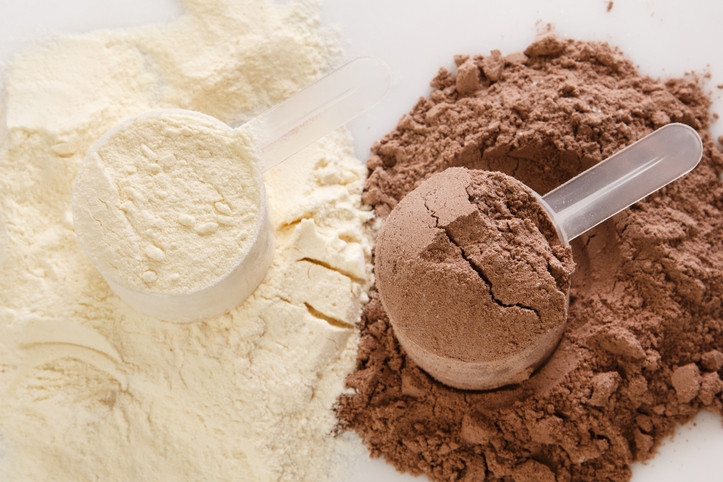
Protein powders are a convenient and effective way to supplement protein intake, but they should not replace whole foods entirely. Many myths surrounding protein powders stem from misinformation or misunderstanding. When used correctly and in moderation, protein supplements can play a valuable role in supporting fitness and overall health. Understanding the differences between various protein types and choosing high-quality products can ensure that you get the best results while avoiding unnecessary concerns.
If you need good quality protein powder we can suggest you a best quality protein powder. if you interested to buy a protein powder DM us on gmail:- healthyworld451@gmail.com

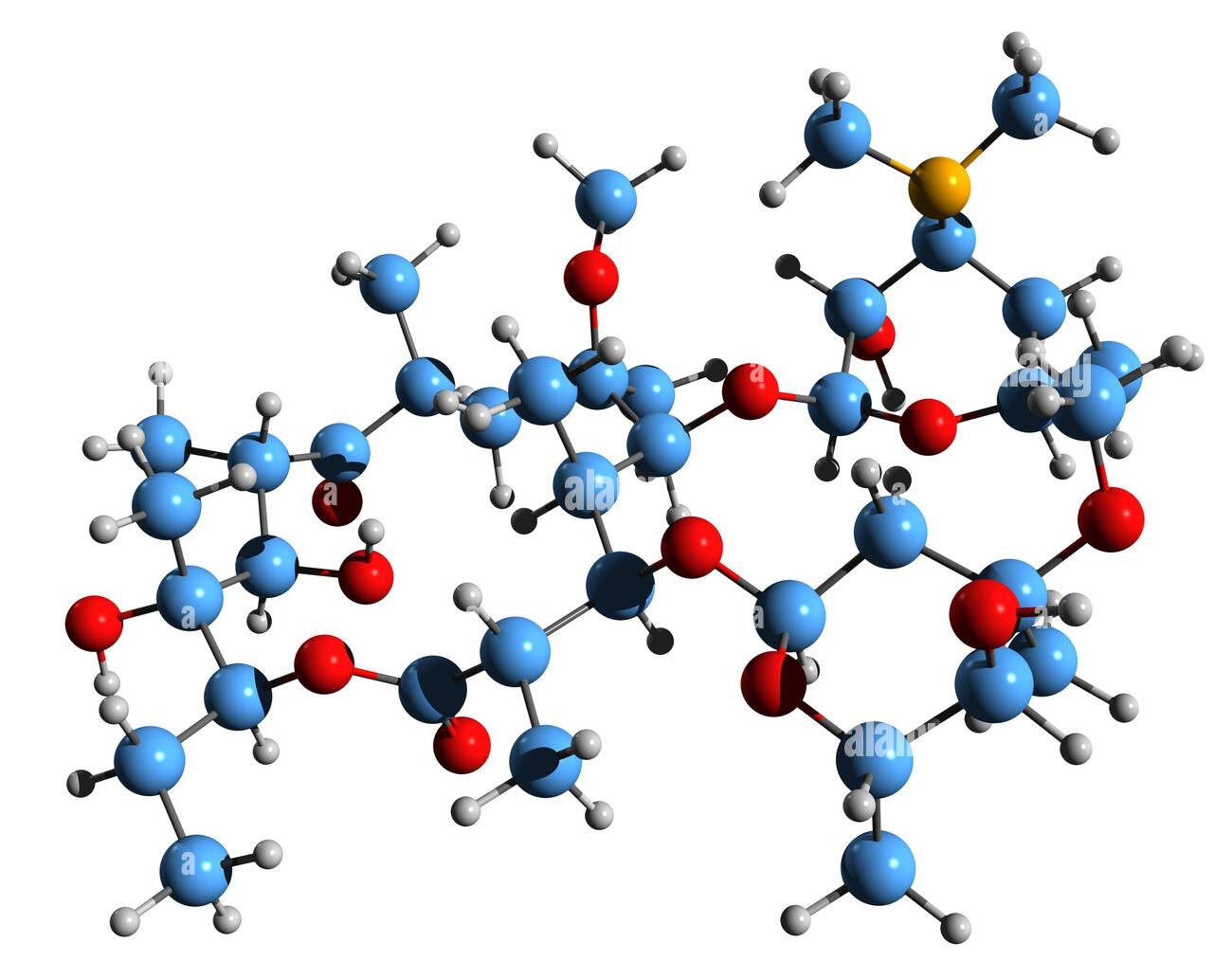
Protein powders are a convenient way to ensure you meet your daily protein needs, especially for those with active lifestyles. Different types cater to various dietary preferences, such as whey for quick absorption or plant-based options for vegans. It’s important to choose the right type based on your goals, whether it’s muscle recovery, weight management, or overall health. For those with dietary restrictions, options like egg or collagen protein can be beneficial. What factors should you prioritize when selecting a protein powder for your specific health goals?